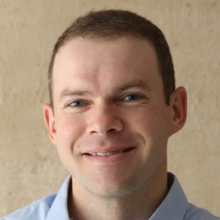This seminar will be conducted by 3-hour online Zoom sessions for four days: Saturday, May 27, Sunday, May 28, Saturday, June 3 and Sunday, June 4 from 10:00 to 13:00 (JST). Students taking this seminar for credit must attend all four days. Students can add/drop this seminar course by 14:00 on Saturday, May 27.
The pre sign-up (or course registration for those who are taking this seminar for credit) is required for anybody attending the public session on Saturday, May 27 from 10:00 to 13:00. The sign-up process must be completed through "Distinguished Lecturer Series Seminar Sign-Up Form" that is available on TUJ Grad Ed website. The sign-up deadline is Friday, May 26 at 12:00. The public session Zoom link will be provided to those people who completed the online sign-up (or course registration) process by 18:00 on Friday, May 26.
Diagnostic Language Assessment (DLA) seeks to identify individual learners’ strengths and weaknesses to inform subsequent learning activity, with the ultimate goal of language development. With its focus on specific learner needs and orientation to learning, DLA holds considerable potential for individualizing instruction and improving language learning outcomes. Despite its promise, DLA also appears to be conceptually muddled in practice, with diagnostic procedures that connect directly to follow-up instruction exceedingly rare (or at least rarely documented and shared). What does it take to design useful DLA procedures and implement them in classrooms or other learning contexts?
Answering this question is the focus of this seminar. In the first lecture, the instructor will provide a review of DLA theory, focusing in particular on the work of Alderson and colleagues (Alderson et al., 2015; Harding et al., 2015), and a survey of current practices ranging from low-stakes pronunciation diagnostics to diagnostic information extracted from high-stakes proficiency tests. Through lecture and hands-on activities in subsequent sessions, we will further examine the design and construction of diagnostic tools, nature and delivery of diagnostic feedback, and connections to follow-up learning activity. Throughout the seminar, important connections to models of language ability and (instructed) second language acquisition will be highlighted. As a culminating assignment, students will design a DLA procedure that could be implemented in a familiar instructional setting.

